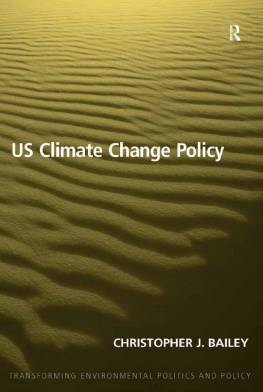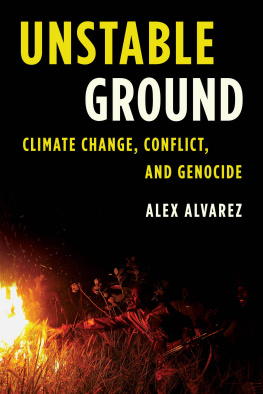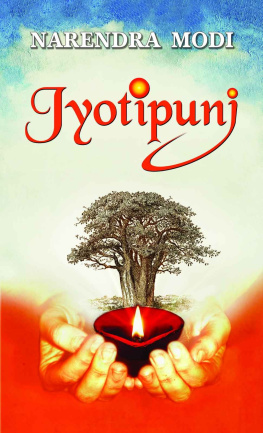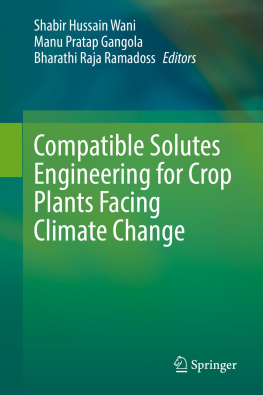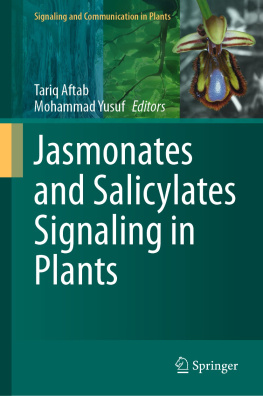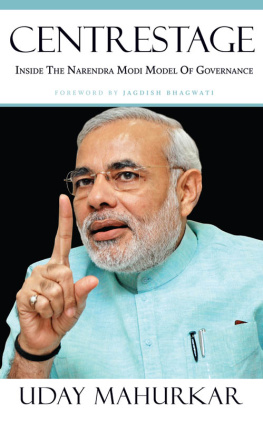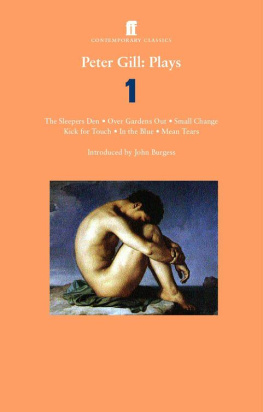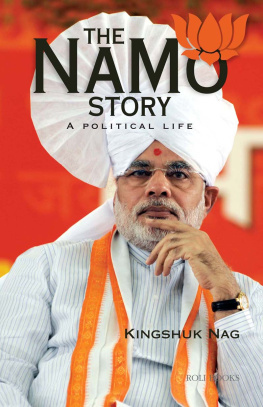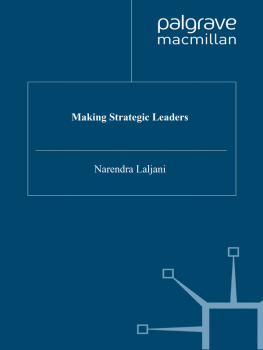Tuteja Narendra Gill Sarvajeet S. - Climate Change and Abiotic Stress Tolerance
Here you can read online Tuteja Narendra Gill Sarvajeet S. - Climate Change and Abiotic Stress Tolerance full text of the book (entire story) in english for free. Download pdf and epub, get meaning, cover and reviews about this ebook. year: 2013, publisher: Wiley, genre: Politics. Description of the work, (preface) as well as reviews are available. Best literature library LitArk.com created for fans of good reading and offers a wide selection of genres:
Romance novel
Science fiction
Adventure
Detective
Science
History
Home and family
Prose
Art
Politics
Computer
Non-fiction
Religion
Business
Children
Humor
Choose a favorite category and find really read worthwhile books. Enjoy immersion in the world of imagination, feel the emotions of the characters or learn something new for yourself, make an fascinating discovery.

- Book:Climate Change and Abiotic Stress Tolerance
- Author:
- Publisher:Wiley
- Genre:
- Year:2013
- Rating:4 / 5
- Favourites:Add to favourites
- Your mark:
- 80
- 1
- 2
- 3
- 4
- 5
Climate Change and Abiotic Stress Tolerance: summary, description and annotation
We offer to read an annotation, description, summary or preface (depends on what the author of the book "Climate Change and Abiotic Stress Tolerance" wrote himself). If you haven't found the necessary information about the book — write in the comments, we will try to find it.
Climate Change and Abiotic Stress Tolerance — read online for free the complete book (whole text) full work
Below is the text of the book, divided by pages. System saving the place of the last page read, allows you to conveniently read the book "Climate Change and Abiotic Stress Tolerance" online for free, without having to search again every time where you left off. Put a bookmark, and you can go to the page where you finished reading at any time.
Font size:
Interval:
Bookmark:
Related Titles
Tuteja, N., Gill, S.S., Tiburcio, A.F., Tuteja, R. (eds.)
Improving Crop Resistance to Abiotic Stress
2012
Print ISBN: 978-3-527-32840-6, also available in digital formats
Sauer, T.J., Norman, J., Sivakumar, M.K. (eds.)
Sustaining Soil Productivity in Response to GlobalClimate Change
2010
Print ISBN: 978-0-470-95857-5, also available in digital formats
Wood, A., Jenks, M. (eds.)
Genes for Plant Abiotic Stress
2010
Print ISBN: 978-0-813-81502-2, also available in digital formats
Tuteja, N., Gill, S.S., Tuteja, R. (eds.)
Improving Crop Productivity in Sustainable Agriculture
2013
Print ISBN: 978-3-527-33242-7, also available in digital formats
Yadav, S.S., Redden, B., Hall, A., Hatfield, J., Lotze-Campen
Crop Adaptation to Climate Change
2011
Print ISBN: 978-0-813-82016-3, also available in digital formats
Hirt, H. (ed.)
Plant Stress Biology
From Genomics to Systems Biology
2010
Print ISBN: 978-3-527-32290-9, also available in digital formats

Limit of Liability/Disclaimer of Warranty: While the publisher and author have used their best efforts in preparing this book, they make no representations or warranties with respect to the accuracy or completeness of the contents of this book and specifically disclaim any implied warranties of merchantability or fitness for a particular purpose. No warranty can be created or extended by sales representatives or written sales materials. The Advice and strategies contained herein may not be suitable for your situation. You should consult with a professional where appropriate. Neither the publisher nor authors shall be liable for any loss of profit or any other commercial damages, including but not limited to special, incidental, consequential, or other damages.
Library of Congress Card No.: applied for
British Library Cataloguing-in-Publication Data A catalogue record for this book is available from the British Library.
Bibliographic information published by the Deutsche Nationalbibliothek The Deutsche Nationalbibliothek lists this publication in the Deutsche Nationalbibliografie; detailed bibliographic data are available on the Internet at < http://dnb.d-nb.de >.
2014 Wiley-VCH Verlag GmbH & Co. KGaA, Boschstr. 12, 69469 Weinheim, Germany
Wiley-Blackwell is an imprint of John Wiley & Sons, formed by the merger of Wiley's global Scientific, Technical, and Medical business with Blackwell Publishing.
All rights reserved (including those of translation into other languages). No part of this book may be reproduced in any form by photoprinting, microfilm, or any other means nor transmitted or translated into a machine language without written permission from the publishers. Registered names, trademarks, etc. used in this book, even when not specifically marked as such, are not to be considered unprotected by law.
Print ISBN: 978-3-527-33491-9
ePDF ISBN: 978-3-527-67523-4
ePub ISBN: 978-3-527-67525-8
Mobi ISBN: 978-3-527-67524-1
oBook ISBN: 978-3-527-67526-5
Cover Design Adam-Design, Weinheim, Germany
Typesetting Thomson Digital, Noida, India
Dedication
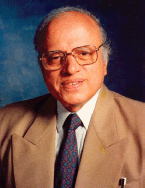
Professor M.S. Swaminathan
This book is dedicated to Professor M.S. Swaminathan the Father of the Green Revolution in India.
Professor M.S. Swaminathan was born in Kumbakonam, Tamil Nadu, India on 7 August 1925 and obtained his B.Sc. in 1947 from Tamil Nadu Agricultural University. He did post-graduation work in genetics and plant breeding in 1949 at the Indian Agricultural Research Institute (IARI). He earned his Ph.D degree in 1952 from the University of Cambridge, UK, for his thesis, Species differentiation, and the nature of polyploidy in certain species of the genus Solanum section Tuberarium. His work presented a new concept of the species relationships within the tuber-bearing Solanum . He undertook post-doctoral research at the University of Wisconsin and returned back to India in 1954 to serve the country. Professor Swaminathan is a renowned Plant Geneticist for his leading role in India's Green Revolution a program under which high-yielding varieties of wheat and rice seedlings were planted in the fields of poor farmers. Professor Swaminathan has been acclaimed by TIME magazine as one of the 20 most influential Asians of the twentieth century and one of the only three from India, the other two being Mahatma Gandhi and Rabindranath Tagore. He has been described by the UN Environment Programme as the Father of Economic Ecology and by Javier Perez de Cuellar, Secretary General of the United Nations (19821991), as a living legend who will go into the annals of history as a world scientist of rare distinction. A plant geneticist by training, Professor Swaminathan's contributions to the agricultural renaissance of India have led to his being widely referred to as the scientific leader of the green revolution movement. His advocacy of sustainable agriculture leading to an ever-green revolution makes him an acknowledged world leader in the field of sustainable food security. He is known as the Father of the Green Revolution in India for his leadership and success in introducing and further developing high-yielding varieties of wheat in India. The International Association of Women and Development conferred on him the first international award for significant contributions to promoting the knowledge, skill, and technological empowerment of women in agriculture, and for his pioneering role in mainstreaming gender considerations in agriculture and rural development. Professor Swaminathan has served as Director of the Indian Agricultural Research Institute, New Delhi (19661972), Director General of the Indian Council of Agricultural Research and Secretary to the Government of India, Department of Agricultural Research and Education (19721979), Principal Secretary, Ministry of Agriculture (19791980), Acting Deputy Chairman, and later Member, Union Planning Commission (19801982), and Director General of the International Rice Research Institute, the Philippines (19821988). Currently, he holds the UNESCO Chair in Eco-technology and is Chairman of the M.S. Swaminathan Research Foundation, Chennai.
Professor Swaminathan is Fellow of the Royal Society of London, the US National Academy of Sciences, the Russian and Chinese Academies of Sciences in addition to the Indian National Science Academy and the National Academy of Agricultural Sciences. Professor Swaminathan was awarded the Ramon Magsaysay Award for Community Leadership in 1971, the Albert Einstein World Science Award in 1986, the first World Food Prize in 1987, and the Volvo and Tyler Prize for Environment, the Indira Gandhi Prize for Peace, Disarmament and Development, the Franklin D. Roosevelt Four Freedoms Medal and the Mahatma Gandhi Prize of UNESCO in 2000. Professor Swaminathan has received 66 honorary doctorate degrees from universities around the world.
Foreword
I am delighted to write the foreword for this book that deals with a subject of huge importance to hundreds of millions of farmers across the globe. Research on the impacts of climate change on agriculture, in general, and rainfed agriculture, in particular, has been largely deficient, except till very recently. However, recently generated knowledge on the subject provides a strong basis for compiling whatever work has been done in the field and disseminating it on a large scale. This particular book dealing with various aspects related to stress tolerance and how this would be affected by climate change is a major step forward in improving our understating of the subject. It is significant that the hundreds of millions of small farmers across the world who are largely dependent on rainfed agriculture already face a number of stresses resulting from the very nature of their activities and the implications for livelihoods dependent on rainfed agriculture are of great significance. The impacts of climate change generally tend to exacerbate these stresses.
Next pageFont size:
Interval:
Bookmark:
Similar books «Climate Change and Abiotic Stress Tolerance»
Look at similar books to Climate Change and Abiotic Stress Tolerance. We have selected literature similar in name and meaning in the hope of providing readers with more options to find new, interesting, not yet read works.
Discussion, reviews of the book Climate Change and Abiotic Stress Tolerance and just readers' own opinions. Leave your comments, write what you think about the work, its meaning or the main characters. Specify what exactly you liked and what you didn't like, and why you think so.

